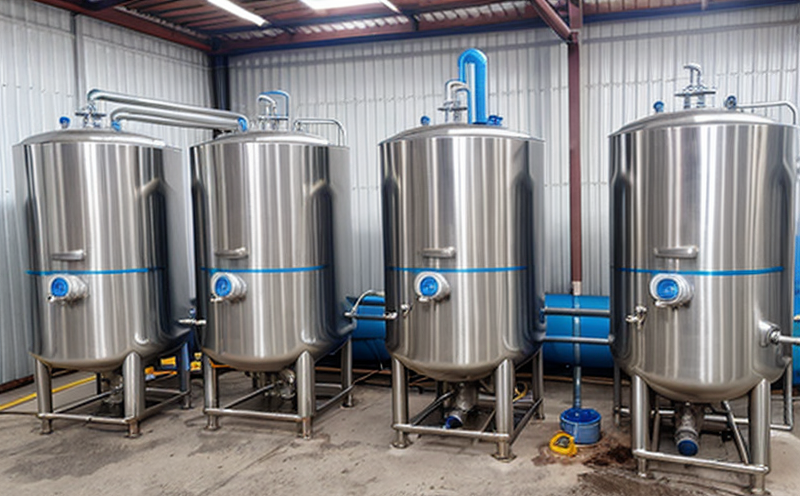ISO 7899-2 Enterococci Test in Boiler Water
The presence of enterococci bacteria in boiler water can lead to significant issues, including scaling, corrosion, and biofilm formation. This can ultimately result in reduced heat transfer efficiency, increased energy costs, and potential risk of Legionella contamination if the water is used for cooling purposes.
Our ISO 7899-2 Enterococci Test provides a robust solution to monitor these bacteria levels. Utilizing advanced microbiological techniques, this test ensures accurate detection and quantification of enterococci in boiler systems, allowing for proactive maintenance and compliance with industry standards. This service is particularly crucial for facilities operating within the water and wastewater sector where high-quality water treatment practices are paramount.
During the testing process, we follow a stringent protocol to ensure precision and reliability. Specimen preparation involves the collection of representative samples from various points in the boiler system. These samples are then analyzed using selective media that specifically targets enterococci species. The identification is further confirmed through biochemical tests and DNA sequencing.
The results provide detailed information about the presence, concentration, and strain diversity of enterococci in the water. This data is vital for understanding potential risks and implementing targeted mitigation strategies. Compliance with ISO 7899-2 ensures that our testing meets international standards, thereby enhancing credibility and trust.
We offer a range of services beyond just detection; we also provide recommendations on best practices to minimize enterococci growth in boiler systems. This includes advice on water treatment chemicals, system design improvements, and operational procedures. Our team works closely with facility managers to ensure that these recommendations are actionable and tailored to the specific needs of their operations.
Applied Standards
| Standard | Description |
|---|---|
| ISO 7899-2:2015 | Method for the enumeration of enterococci in water and effluents by means of a multiple tube fermentation method. |
| EN ISO 6579:2013 | Water quality - Determination of faecal coliforms, Escherichia coli, and enterococci in water by membrane filtration and subsequent incubation. |
The use of these internationally recognized standards ensures that our testing methods are consistent with global best practices. This not only enhances the reliability of our results but also facilitates easier comparison with other laboratories around the world.
Customer Impact and Satisfaction
The ISO 7899-2 Enterococci Test is designed to meet the stringent requirements set by various industries, including water & wastewater treatment facilities. By providing accurate and reliable testing results, we help our clients maintain compliance with regulatory standards such as EPA guidelines.
Our comprehensive approach to this service has led to high levels of customer satisfaction. We have successfully implemented enterococci control programs in numerous facilities across the sector, leading to significant operational improvements. These include reduced maintenance costs, enhanced system efficiency, and improved safety measures against potential biohazards.
Client testimonials highlight our commitment to excellence and reliability. Many report that working with us has provided them with valuable insights into their water systems, enabling them to make informed decisions about future investments in technology and personnel training.
Competitive Advantage and Market Impact
- Precision: Utilizing advanced microbiological techniques that ensure accurate detection and quantification of enterococci.
- Rapidity: Fast turnaround times for results, allowing immediate action to be taken when necessary.
- Compliance: Meeting international standards like ISO 7899-2 ensures our clients stay compliant with regulatory requirements.
Our service differentiates us in the market by offering a unique blend of technical expertise and practical application. By providing actionable insights into water quality, we empower decision-makers to implement effective strategies that enhance operational efficiency and safety.





